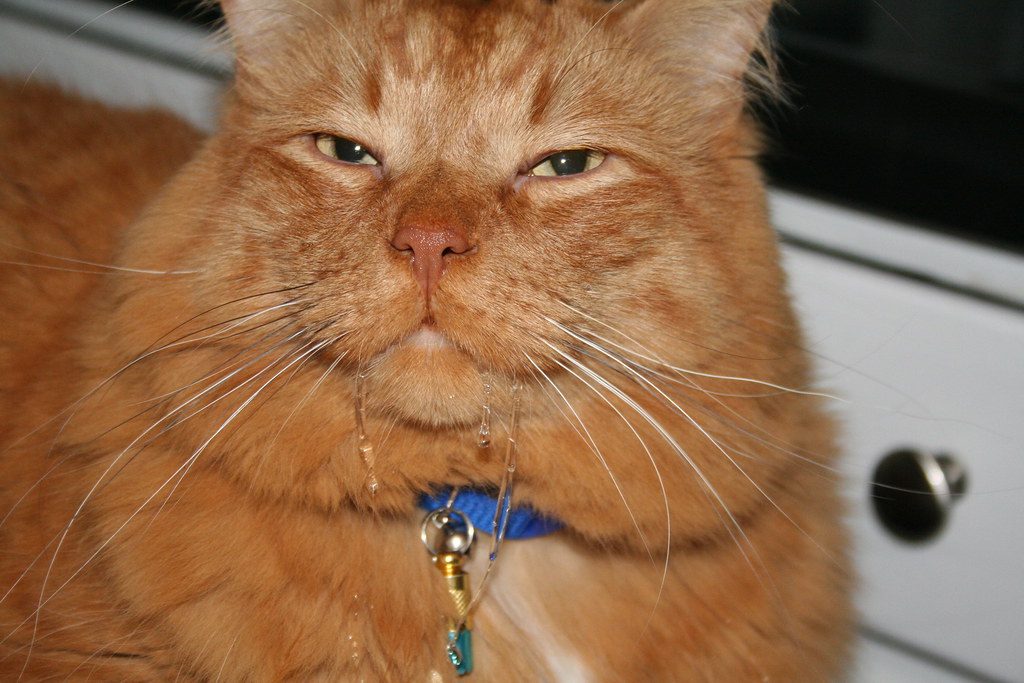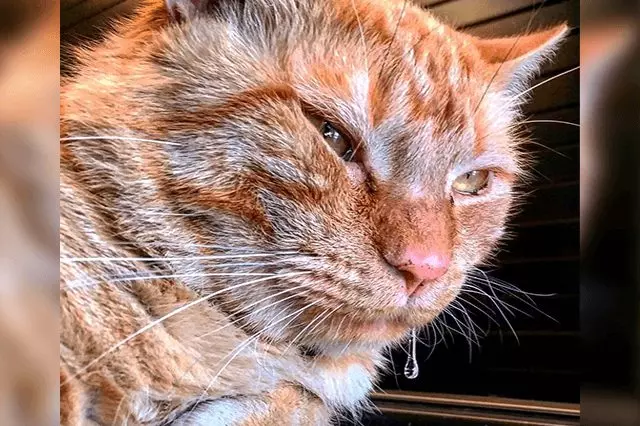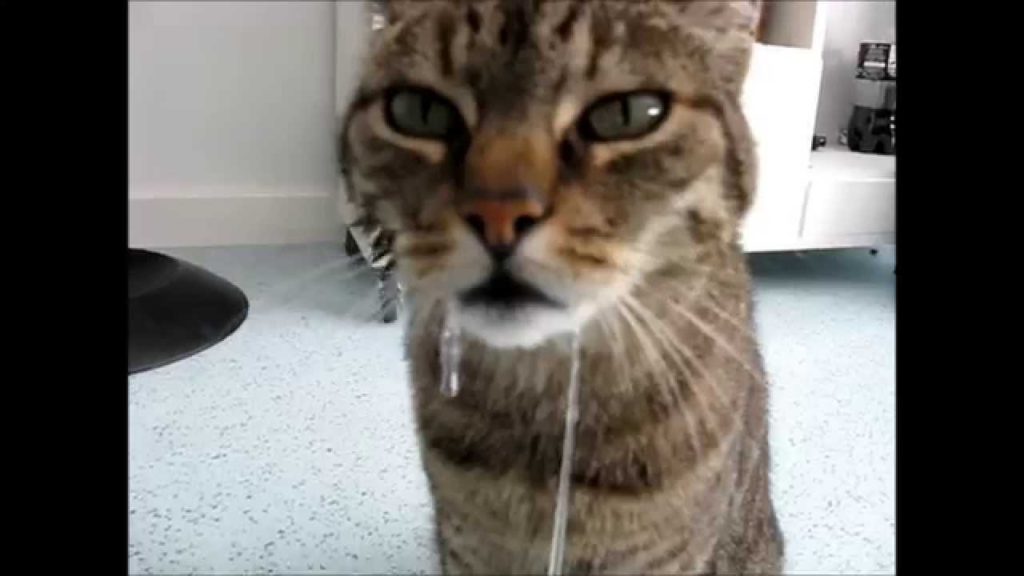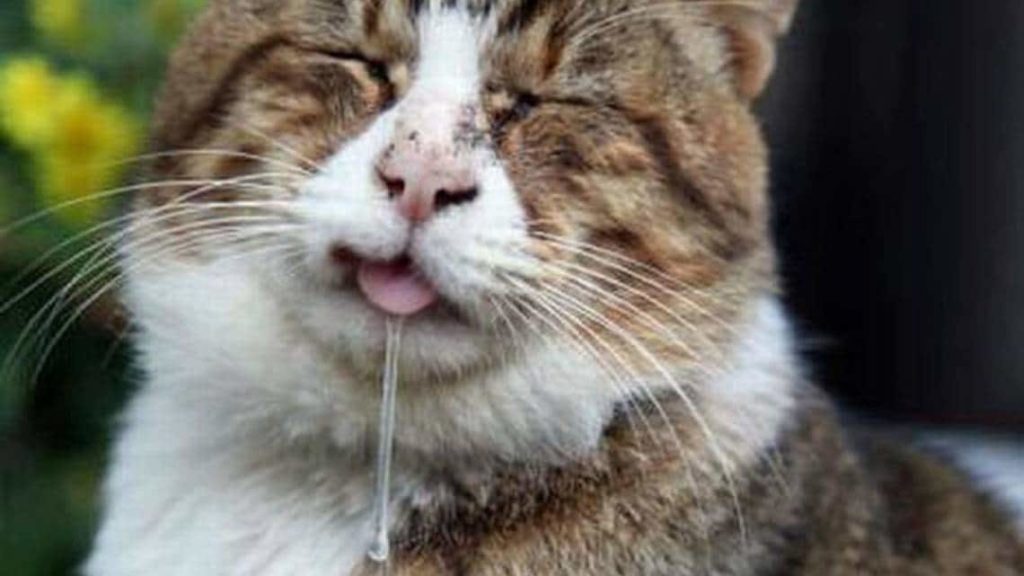Drooling is frequent in cats when they are scratching or yawning. Drooling is a sign of happiness and relaxation that can be traced all the way back to kittenhood. Kittens massage their paws on their mothers’ breasts to induce milk supply. These actions result in a nourishing link between mother and kitten as well as a soothing and pleasant meal. But there are other causes that could induce cat drooling too though, such as contact with a chemical, tooth illness, or injury to the mouth.

Drooling can occur as a result of stress or fright, such as during car rides, vet appointments, or loud activities. If your cat drools all the time, it could be a sign of a health condition. Cats don’t usually drool when they see food. However, it is still possible. It’s probably nothing to be concerned about if your cat drools at the appearance or smell of food but not at other times.
What Makes Your Cat Drool?
Drooling in cats can be caused by a variety of factors. Drooling is almost always an indicator of oral pain in cats. When a cat finds it difficult to close her mouth or swallow, saliva leaks from her mouth, resulting in drooling. If a cat eats a deadly or irritating plant or ingests another poisonous or irritating substance, she may drool. Mouth pain is by far the most common cause of drooling in cats. Drooling in cats can be caused by a variety of health conditions that require medical intervention.

- Dental Disease
Cats can suffer from a variety of oral and dental problems that go unnoticed until they cause severe disease or discomfort. The cat will frequently salivate excessively as a result of the pain. Drooling in cats can be caused by a variety of things, including mouth ulcers, tooth injuries, gum disease inflammation, cat cavity lesion, and infections. Your veterinarian can examine your cat’s mouth to see if he or she has dental disease. They will also recommend dental therapy if dental disease is discovered. Antibiotics, for example, may be required to treat your cat’s dental and mouth problems.
- Nausea
Nausea may be present in cats that are drooling and not eating. It’s possible that your cat has vomited in addition to drooling, although this isn’t usually the case. Nausea in cats can occur for a variety of reasons. Internal parasites, kidney problems, and gastrointestinal diseases can all cause nausea and vomiting in cats. If your cat appears nauseated, vomits, or has a poor appetite, take him to the vet for a thorough checkup. Your vet may request test work to examine organ function, blood cells, and urine content in further detail. The findings may aid in determining diagnostic and therapeutic choices in the future.
- Exposure to Chemicals
Excess salivation can develop in cats that have licked, eaten, or ingested a hazardous substance. Poisonous flora, caustic chemicals, and hazardous foods are all examples of this. If cats are exposed to pesticides, which are present in some flea/tick treatments intended solely for dogs, it can cause severe drooling. Drooling can be induced by a bitter taste. If you’ve ever had to give your cat a bitter prescription, you’ve probably seen this reaction. Bring your cat to the nearest open veterinarian as soon as possible if you fear your cat has been exposed to something poisonous.
- Trauma
Excessive salivation is a common side effect of mouth injuries. Chewing electrical lines, combing something irritating off their fur, or eating some irritating plants can all result in fractures of the jaw or skull, as well as mouth ulcerations. If anything gets stuck in their mouth, they may drool. Some viral infections and severe kidney disease can create painful mouth ulcers that cause drooling. Fracture trauma in cats may necessitate surgical surgery. Others may require pain relief as well as other forms of support.

Conclusion
Drooling is a sign that your cat is in pain, so schedule an appointment with your veterinarian as soon as possible. Medications for pain or nausea may be used, depending on the cause. Oral surgery to treat tumors may also be included, as well as dental care and removal of diseased or painful teeth. When a cat is relaxed and content, it’s normal for them to drool a little bit. Painful disorders are the most common cause of drooling. Drooling could indicate that your cat is in discomfort. Take them to the Vet.

